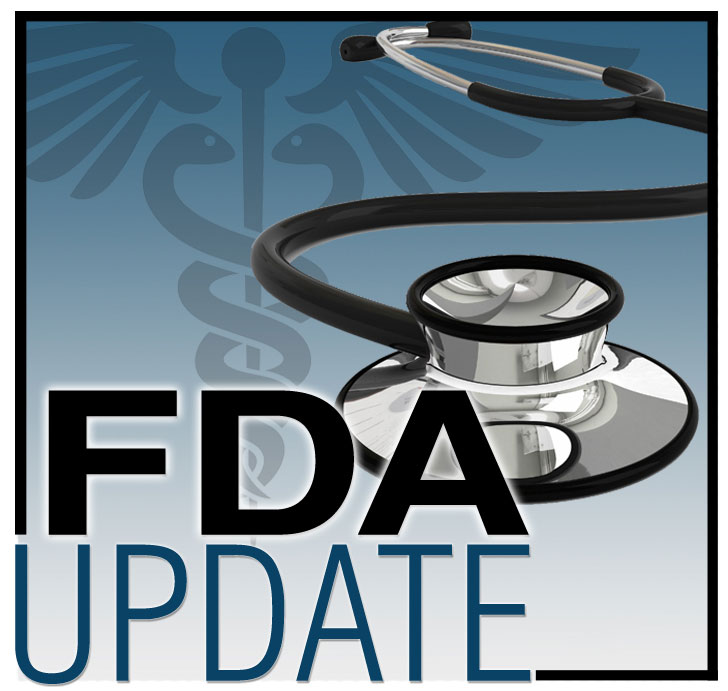
On November 16, 2017, the U.S. Food and Drug Administration (FDA) approved sunitinib malate (Sutent, Pfizer Inc.) for the adjuvant treatment of adult patients at high risk of recurrent renal cell carcinoma following nephrectomy.
Approval was based on a multi-center, international, double-blind, placebo-controlled, trial (S-TRAC), in 615 patients with high risk of recurrent RCC following nephrectomy. Patients were randomized 1:1 to receive either 50 mg sunitinib malate once daily, 4 weeks on treatment followed by 2 weeks off, or placebo. Median disease-free survival for patients taking sunitinib malate was 6.8 years (95% CI: 5.8, not reached) compared with 5.6 years (95% CI: 3.8, 6.6) for patients receiving placebo (HR=0.76; 95% CI: 0.59, 0.98; p=0.03). At the time of DFS analysis, overall survival data were not mature.
The most common adverse reactions (≥25%) to sunitinib malate are fatigue/asthenia, diarrhea, mucositis/stomatitis, nausea, decreased appetite/anorexia, vomiting, abdominal pain, hand-foot syndrome, hypertension, bleeding events, dysgeusia/altered taste, dyspepsia, and thrombocytopenia. The labeling contains a boxed warning to alert healthcare professionals and patients about the risk of hepatoxicity, which may result in liver failure or death.
The recommended dose of sunitinib malate for the adjuvant treatment of RCC is 50 mg orally once daily, with or without food, 4 weeks on treatment followed by 2 weeks off for nine 6-week cycles.
Full prescribing information is available.
Healthcare professionals should report all serious adverse events suspected to be associated with the use of any medicine and device to FDA’s MedWatch Reporting System by completing a form online, by faxing (1-800-FDA-0178) or mailing the postage-paid address form provided online, or by telephone (1-800-FDA-1088).
Follow the Oncology Center of Excellence on Twitter @FDAOncology.
Check out recent approvals at the OCE’s podcast, Drug Information Soundcast in Clinical Oncology (DISCO).
In collaboration with the FDA and as a service to our members, ONS provides updates on recent FDA approvals and other important FDA actions (e.g., updated safety information, new prescribing information) pertaining to therapies for patients with cancer. This allows the agency to inform oncologists and professionals in oncology-related fields in a timely manner. Included in the FDA updates is a link to the product label or to other sites for additional relevant clinical information. In supplying this information, ONS does not endorse any product or therapy and does not take any position on the safety or efficacy of the product or therapy described.





